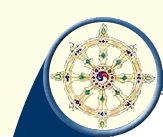 |
|
||
|
|
|
Course Overview First, we will examine the central theoretical concepts that frame liberal democracy. What is it? How do we know when we have it? Which variables contribute to non-democratic countries making a transition to it? Can it be “created”? If it happens, or is created, how does a country consolidate it? Nepal as a Laboratory Taking as inspiration the teams of social scientists that sought to “design democracy” in post-World War II Japan and Germany, we will utilize the laboratory of the South Asian country of Nepal. With a varied, and sometimes confusing, recent (post-colonial) history of constitutional monarchy, monarchical coups, assassinations, armed insurrection, and a vocal and vibrant diaspora intent on creating and maintaining a democratic system, we have an excellent opportunity to unpack many of the critical components that potentially comprise a democratic system. Nepal-US Peer-to-Peer Exchange Within the class at the University of Miami, each student will be a member of a study and design team that will address one of the above issue areas of particular interest to them. Each group will explore the intricacies of their selected area and make proposals as to how to address the specific relevant challenges that they identify or have been identified by leading scholars and practitioners in the field. Each group will have a corresponding team at the Nepali institution, most preferably, from varied disciplines including Political Science, Economics and Business Administration to whom they will submit their ideas and proposals. The Nepalese teams, with their real world experience and expertise of being the educated elite in a country in the midst of a democratic transition, will provide valuable feedback on the ideas of their American peers. We will also invite some Nepali scholars and policy makers to participate in this Internet classroom exercise to interact with the students from the two continents. We expect that these exchanges will provide unique insights to both groups of students. The Final Exercise In the last quarter of the semester, we will seek to synthesize the ideas that the different groups are exploring. Each group will present to the entire class the essential ideas and concepts of their substantive explorations. This final exercise will not only allow each group to have exposure to the ideas of the other groups, but also to see the holistic nature of this complex exercise. Ultimately, as a cohesive group, we will attempt to put together the “pieces” that comprise democracy. The Participating Team The Nepal Study Center at the University of New Mexico (UNM) will coordinate the Designing Liberal Democracy project. The participating members are the Political Science departments from the University of Miami and UNM (Professors Jeff Drope and Professor Mark Peceny). Some select students from Nepali higher academic institutions will be participating. NSC’s Professor of Economics, Alok K. Bohara, and his Liberal Democracy Nepal team will facilitate the exchange of ideas between the teams in the two countries. Nepal Study Center will begin by creating a listserve (NSCLDNEduExchange-L) to be moderated by a participating faculty. We expect to begin our first experimental exchange in the Spring of 2006 (January-May). In the future, depending on the success of the program, we seek to have both chat-room facilities and if possible, video capabilities, so the students from the two countries cannot only exchange ideas in the written word but also verbally. If you have any question, please contact the Center.Jeff Drope, PhD., U. of Miami, Florida Alok K. Bohara, PhD., U. of New Mexico Mark Peceny, PhD., U. of New Mexico Hari Sharma, KCM, Kathmandu, Nepal Designing Liberal Democracy Bulletin Board
Students post messages and exchange ideas through the bulletin board. Only registered students from US and Nepal are allowed to engage in this interactions. The interactive bulletin board can be accessed by clicking the following link:
Currently, only students from the participating universities are allowed to exchanges ideas on this forum. Those interested in other wide ranging policy issues are encouraged to log on the main forum page and participate: Himalayan Policy Research Discussion Forums. Reports on Nepali Conflict LDN Workshop Proceedings
Dr. Shankar Sharma's (Vice Chairman National Planning Commission of Nepal) talk at UNM: Summary presentation "Development and Conflict in Nepal" (Feb. 24, 2006, Nepal Study Center, Department of Economics, University of New Mexico) Professor Jeff Drope's Reading Materials (U. of Miami)
|
| Home | Objectives | Friends | Giving | Announcements | Feedback | Links | Photos | Contact Us | |||
| Copyright © 2005 nepalstudycenter.unm.edu - All Rights Reserved. |

